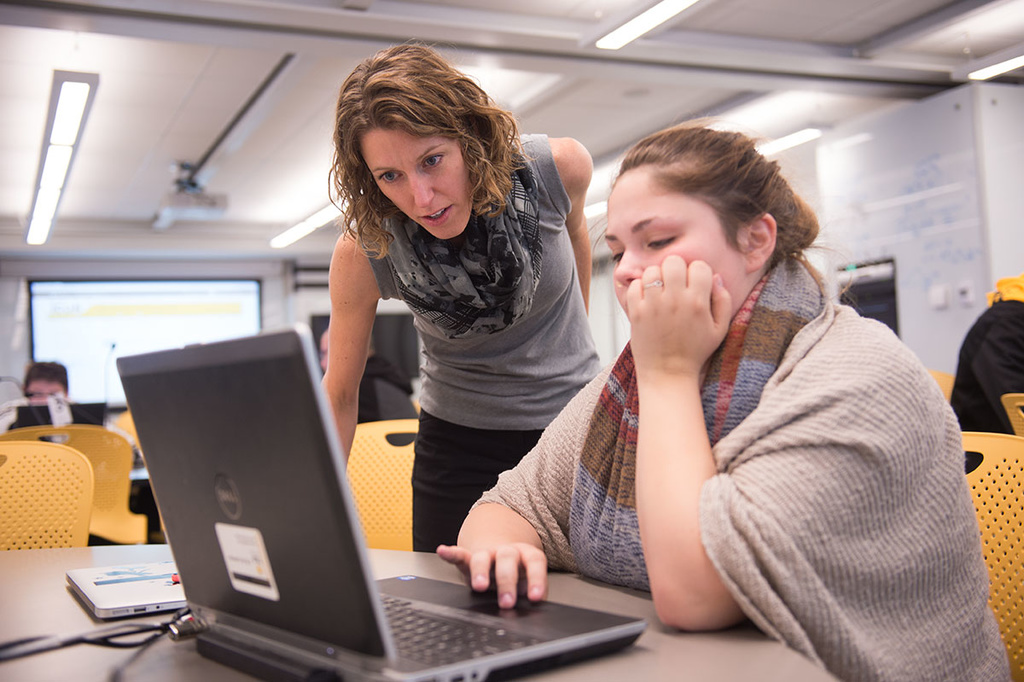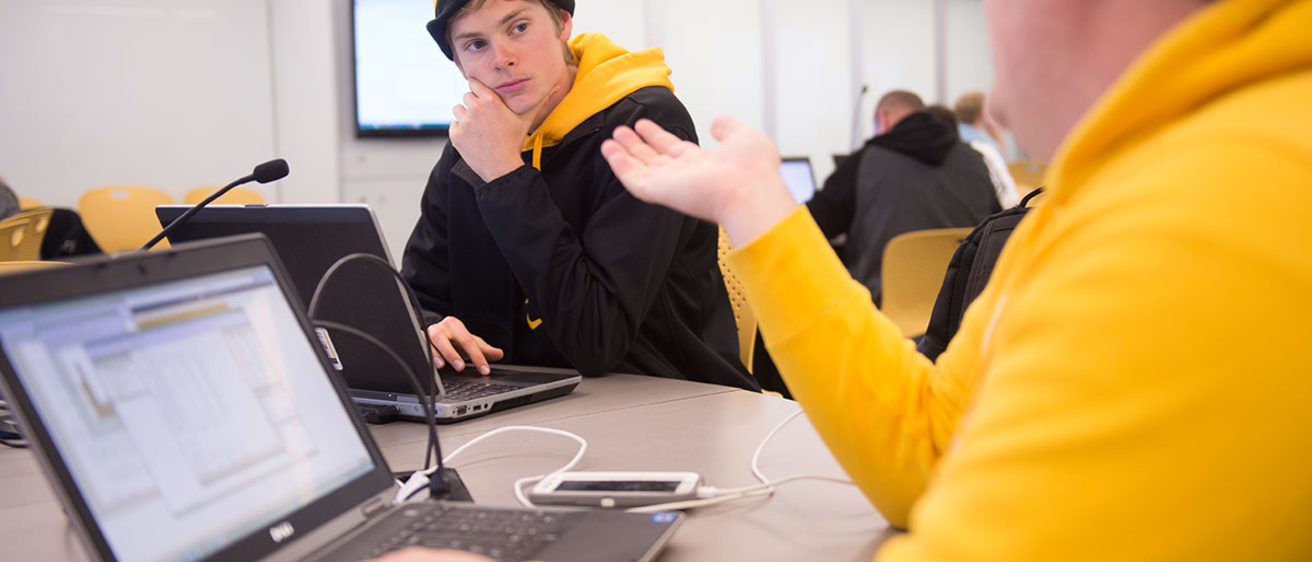With only months to go before the Iowa Caucuses, students in Abigail Rury’s Hawkeye Poll class lean over their computers, their eyes aglow with statistical-analysis software.
Throughout the fall semester, these undergraduate students have begun to master the basic skills of survey design, sampling, and question wording. But now, after helping create and conduct a public opinion poll of roughly 13,621 registered voters in Iowa, the results are in, and it's time to interpret responses.
“My goal for this whole class is for the students to leave being more knowledgeable consumers of polls,” says Rury, a graduate teaching assistant in the political science department. “Whatever the poll—CNN, CBS, FOX—I want the students to be able to understand where all of the data comes from and how to interpret it.”
The Hawkeye Poll itself—which has existed in various forms since 2007—was created as a vehicle for students to get hands-on research experience for individual honors projects and graduate dissertations, as well as faculty research. It still serves that purpose today, contributing to the research of more than two dozen graduate students.
But now that undergraduates can participate as part of a formal course, students gain the ability to critically consume polls reported in the media, a functional knowledge of the survey process, and valuable research experience that translates well into just about any job.
“By exposing students to the inner workings of the survey process, we’re able to communicate the important message that polling is not so complicated, and we can do it ourselves if we follow the right processes,” says Fred Boehmke, UI political science professor and faculty adviser for the Hawkeye Poll.
At the beginning of the semester, students learned about different types of polls and how to determine whether the results were reliable. Then, students brainstormed a list of issues they were interested in asking Iowans about. After narrowing the list, the students began what they describe as their toughest work—wording the questions in a way that avoids leading the respondent to a particular answer.

“Writing the questions is so much more complicated than you’d think,” says Lindsey Rayner, a sophomore communication studies and political science student from Schaumburg, Illinois, with aspirations to manage political campaigns after graduation. “There’s so much bias you have to avoid, and you have to make sure it’s not awkward to read aloud because it’s a phone interview.”
The Iowa Social Science Research Center provides grant development support and data collection, management, and access services to the university community.
After finalizing their questions, students logged hours in the Iowa Social Science Research Center polling Iowans on whether they planned to caucus, who they intended to caucus for, and how they felt about issues such as immigration, inequality, and climate change.
Hard work? Yes. But the students say they’ve enjoyed the hands-on experience.
“This class is cool because we get to create the poll and conduct it, which gives us a lot of control,” says Chris Blythe, a second-year student from Ankeny studying political science, ethics and public policy. “I’ve enjoyed the whole process, but just seeing the results at the end is the best and the most interesting.”
Students say they’re excited to use these skills in the future, whether it be through their career or in political conversations with their peers.
“I think it’s fun to see what people in our state are thinking, but it’s also very practical experience in the sense that, even if I’m not working with political polls in the future, I’ll still be able to look at different data to determine how reliable and valuable it is,” says Dexter Golinghorst, a political science and economics student from Walcott. “A class like this gives me the background to start a conversation about what the standard components of a poll are and whether the poll in question is valid.”
To learn more about the Hawkeye Poll and view the latest results, visit clas.uiowa.edu/polisci/research/hawkeye-poll
